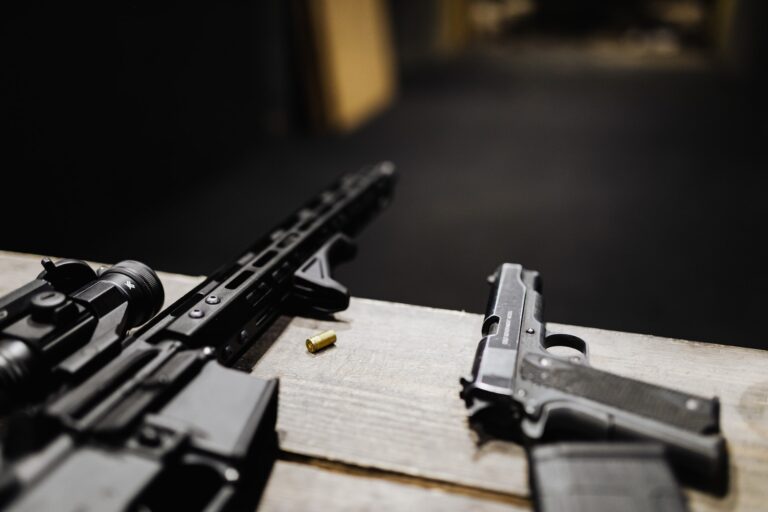Libya has long been a country that is fraught with conflict and instability. As such, the presence and use of firearms have become a significant aspect of the nation’s culture and society. In this article, we will explore the various aspects of gun laws in Libya, including legal ownership, types of firearms, public opinion, and law enforcement practices.
Can You Legally Own a Gun in Libya?
While private gun ownership is technically allowed in Libya, the ongoing instability and security issues in the country have led to a lack of strict regulation and enforcement of gun laws. As a result, many individuals possess firearms without proper documentation or licenses.
How Can One Obtain a Gun License in Libya?
Before the fall of Muammar Gaddafi’s regime in 2011, obtaining a gun license in Libya was a relatively straightforward process. Applicants would submit a request to the local police station, undergo a background check, and pay a fee. However, since the regime’s collapse, the process for obtaining a gun license has become more difficult and uncertain, with no clear guidelines or procedures in place.
What Are the Laws, Penalties, and Law Enforcement Practices Regarding Firearms in Libya?
Libya’s gun laws are largely based on legislation from the Gaddafi era, which includes restrictions on the types of firearms that can be owned and the need for a license to own and carry a weapon. However, these laws are not consistently enforced due to the ongoing instability and fragmentation of law enforcement agencies.
Penalties for violating gun laws can range from fines to imprisonment, depending on the severity of the offense. However, the enforcement of these penalties is often sporadic and inconsistent, as the judicial system in Libya remains weak and fragmented.
What Is the Public Opinion on Guns and Firearms in Libya?
Public opinion on guns and firearms in Libya is varied and complex. On one hand, many Libyans view firearms as necessary for personal protection, given the ongoing conflict and security threats. On the other hand, there is a growing awareness of the negative impact that widespread gun ownership and use can have on public safety and social stability.
What Kind of Guns Are Commonly Found in Libya?
Various types of firearms are found in Libya, ranging from small arms such as handguns and rifles to larger weapons like machine guns and rocket-propelled grenades (RPGs). Many of these weapons have been acquired through the black market, looting of military stockpiles, or as part of the ongoing conflict between various armed factions.
What Are the Rules Regarding Air Rifles and Airsoft Guns in Libya?
There are no specific regulations or restrictions on air rifles and airsoft guns in Libya. However, given the widespread availability of more lethal firearms, these types of weapons are relatively uncommon and not widely used.
What Are the Statistics on Gun Ownership and Other Gun-Related Data in Libya?
Accurate statistics on gun ownership and gun-related data in Libya are difficult to obtain due to the ongoing conflict and lack of centralized data collection. However, it is estimated that there are between 500,000 and 1 million firearms in the country, with a population of around 6.7 million people. This puts Libya among the countries with the highest rates of gun ownership in the world.
What Government Laws and Resources Are in Place to Regulate Firearms in Libya?
The Libyan government, such as it is, has struggled to implement and enforce comprehensive gun control measures. The fragmentation of the country’s political and security institutions has made it difficult to create a unified and effective system for regulating firearms. However, there have been some efforts to address the issue, such as disarmament, demobilization, and reintegration (DDR) programs for former combatants, as well as limited initiatives to collect and destroy illegal weapons.
In conclusion, gun laws in Libya are complex and challenging to navigate due to the ongoing conflict and instability in the country. While there are technically laws and regulations in place, their enforcement and implementation remain inconsistent and fragmented. As a result, the prevalence of firearms and gun-related violence in Libya remains a significant concern for both the nation and the international community.
